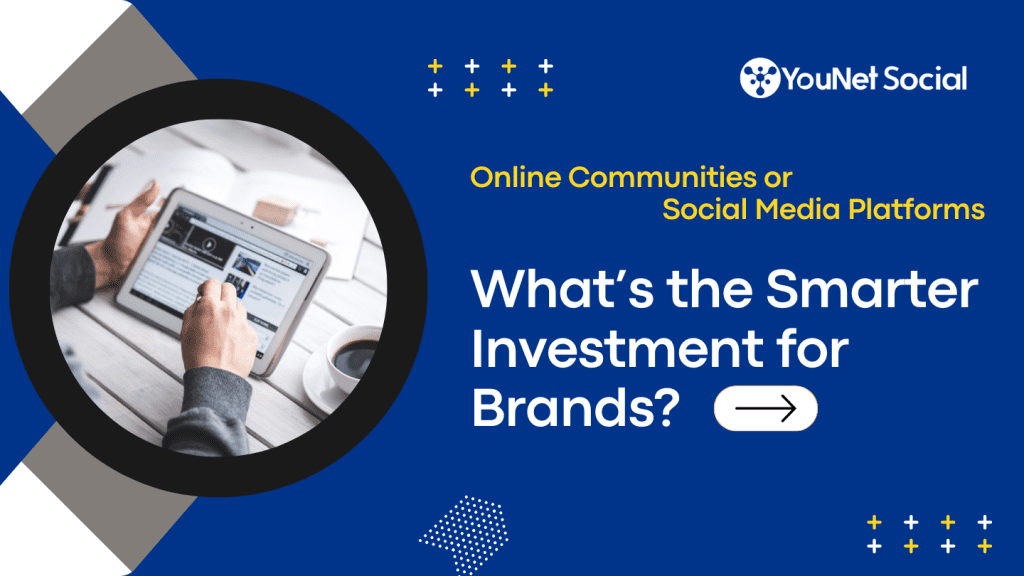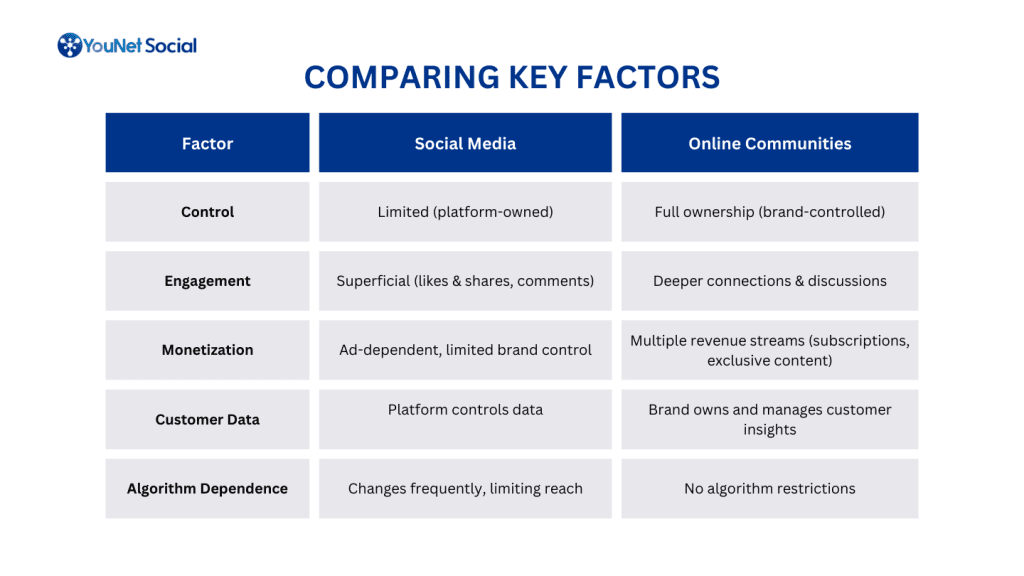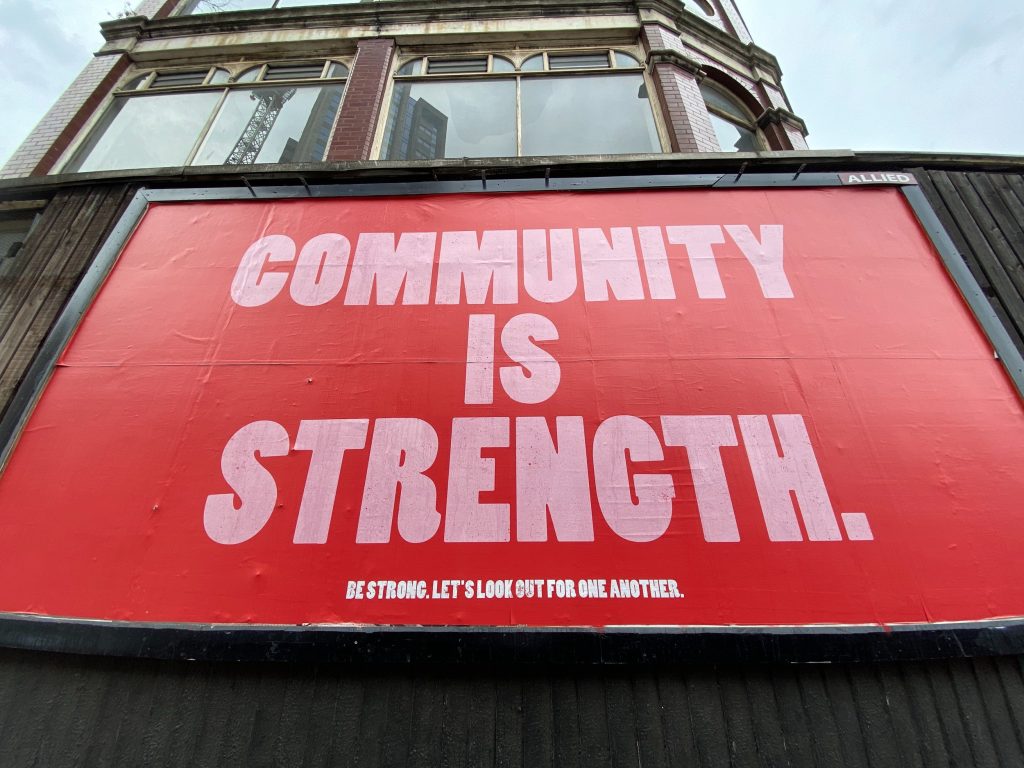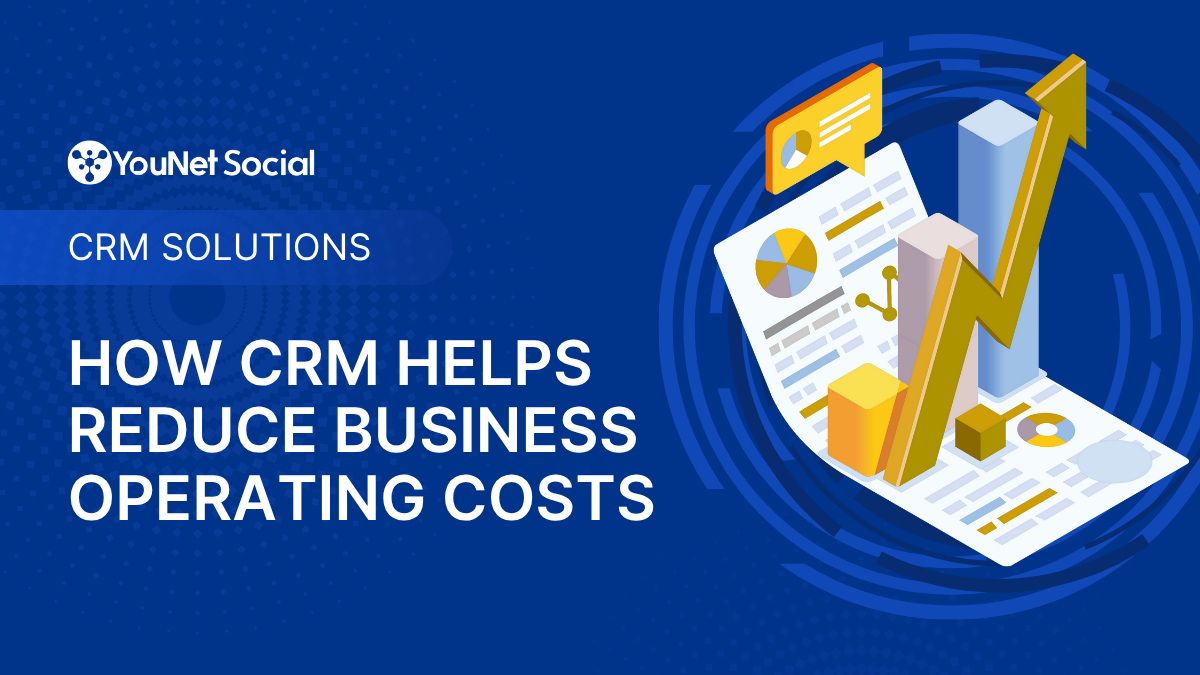

In today’s digital landscape, online engagement is crucial for brands looking to build strong relationships with their audiences. Businesses commonly leverage social networks like Facebook, LinkedIn, and Instagram to connect with customers, share updates, and increase brand awareness.
However, relying solely on social media comes with limitations. Many brands overlook the benefits of private social communities—platforms designed for deeper engagement and long-term brand loyalty. This raises an important question: Which approach is better for sustainable brand success?
1. Understanding the Difference between Online Communities and Social Media Platforms
Social Media Platform


Social media are public platforms where individuals and businesses interact, primarily through posts, comments, likes, and shares. These platforms include Facebook, Instagram, LinkedIn, and Twitter, among others. While social networks provide access to a massive audience, their algorithm-driven nature makes it challenging to maintain consistent organic reach. Moreover, brands do not own their data—platforms control content visibility and engagement, making businesses vulnerable to algorithm changes.
Online Community Platform
An Online Community Platform, or more precisely a Branded Online Community, is a multifaceted website platform designed to gather users with shared interests. This platform offers a range of social features that enable users to directly engage with topics they care about, and interact with other community members.
Unlike social media, a dedicated Brand Online Community give businesses complete control over content, user’s data, consumer needs, opinions, desires, engagement strategies. These platforms allow brands to build long-term loyalty by offering exclusive content, discussions, and a space for direct interactions. Online communities are particularly valuable for businesses looking to create highly engaged, niche communities around their products or services. Examples: phpFox-powered communities, Discourse, Mighty Networks
By leveraging this community, brands can enhance customer care, improve services, increase agility, and optimize user engagement. Conversely, brands will not have access to such comprehensive data from platforms like Facebook or other third-party systems.
Comparing Key Factors
To help you navigate the differences between Social Media and Online Community platforms, we’ve created a clear comparison of the key factors involved. This section breaks down each factor, highlighting their pros and cons to streamline your decision-making process.


The Future of Brand Engagement: Why Enterprises Are Investing in Private Online Communities
Studies from advanced markets indicate that building an Online Community is a more effective strategy than relying solely on Facebook or social media platforms in general.
For example, statistics from FeverBee Community Consultancy (www.feverbee.com) illustrate this point. Coca-Cola’s Facebook fan page boasts 34 million fans, yet only 0.2% (56,000) are truly active members, engaging sporadically on a monthly basis.
This highlights a critical issue: Facebook’s primary focus on social connections and entertainment often fails to meet the demand for meaningful brand-user interaction.
Recent studies indicate that consumers are highly engaged in the digital space and demonstrate a strong interest in brand interaction. However, they are also increasingly discerning, seeking authentic engagement, personalized experiences, and brands that align with their values. Traditional media and passive social media advertising often fall short in meeting these evolving expectations. Therefore, brands should prioritize building meaningful, interactive online communities and omnichannel strategies to effectively connect with their consumer base.
- Increased Brand Loyalty: Customers feel a stronger connection to brands when they engage in an exclusive community rather than just following a public page.
- Complete Data Ownership: Businesses gain direct access to user data, allowing for better personalization and improved customer insights.
- Higher Engagement & Retention: Unlike traditional social networks, where users passively consume content, social communities encourage active participation through discussions, exclusive content, and member-driven interactions.
- Multiple Monetization Opportunities: Businesses can explore subscription models, premium memberships, or exclusive content sales—revenue streams that are not dependent on external advertising platforms.
- Long-Term Stability: Unlike social networks that can change policies or restrict organic reach overnight, a private social community remains under the brand’s control with no third-party intervention.
Building Online Communities: What’s Holding Businesses Back?


Online communities are one of the core pillars of digital marketing, offering clear, long-term value. But in reality, many businesses only see them at a surface level and focus on short-term gains. Why?
- In times of economic difficulty, digital marketing funds are often the first to be cut. As a result, brands shift their attention to quick-win tactics like social media ads or viral content — things that show fast results but don’t build lasting connections. For small businesses, it’s even easier to fall into the trap of chasing short-term goals and overlooking deeper, long-term strategies.
- From the agency side, it’s also easier and faster to pitch short-term campaigns. They’re simpler to execute, show quick returns, and help keep cash flow moving. Building a team that can run long-term community-building projects — with creative ideas, technical skills, and strategic thinking — takes time, money, and commitment, which not every agency is ready to invest in. Truth is, to truly master online community building, an agency needs to go through the process, learn from real experience, and grow its capabilities. Only then can they help brands tap into the real power of community-led marketing.
Unfortunately, These two factors continue to limit the presence of high-quality, strategic digital marketing initiatives in the Vietnamese market. What’s concerning is that many brands are spreading themselves thin across short-term activities, while neglecting long-term vision and focus.
However, when brands start thinking long-term — not just in digital marketing but in their overall marketing strategy — it’s the customers who benefit the most. And when customers feel valued and well-served, they’re far more likely to stick around and stay loyal to the brand. At the end of the day, that’s exactly what every brand is aiming for, especially during tough economic times like now.
At YNS, we’re proud to be a pioneer in enabling brands and agencies with cutting-edge SocialTech solutions. We believe that building a strong online community shouldn’t be complicated or out of reach — and that’s exactly what our Online Community Solution is here for.
With a full suite of advanced social networking features, we makes it easier than ever for brands to create a space where customers don’t just follow — they engage, connect, and become part of something bigger. From member management, content sharing, and real-time interactions, monetization to gamification tools that keep your community active and growing — we’ve got everything you need to turn followers into loyal brand advocates.
Whether you're a brand looking to strengthen customer relationships, or an agency wanting to deliver long-term value to clients, YNS is here to help you build a sustainable, engaged community — one that drives real business growth, not just vanity metrics.
Because in today’s world, it’s not about how many people you reach — it’s about how deeply you connect.
Get in touch with us and let us know your requirements. We’ll help you find the best solution.




